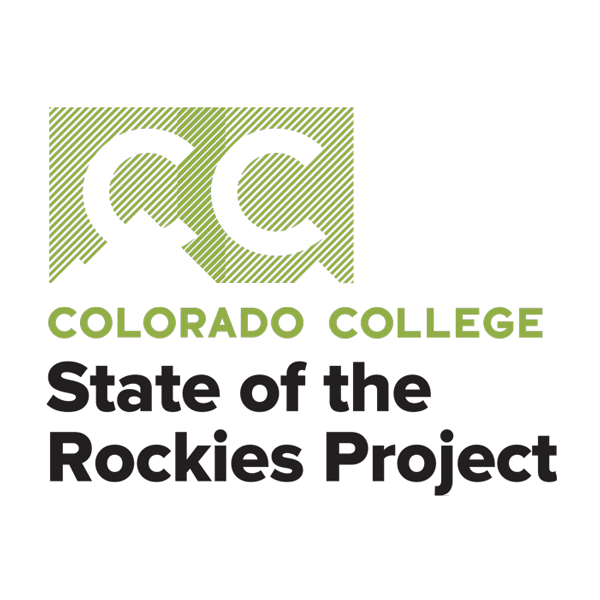Colorado College’s 14th annual State of the Rockies Conservation in the West Poll reveals public lands issues like threats to wildlife habitats, water pollution, and the loss of natural areas are highly important to voters in the West and play a key role in how they will vote in 2024.
The poll, which surveyed the views of voters in eight Mountain West states (Colorado, New Mexico, Utah, Wyoming, Arizona, Idaho, Montana, Nevada), found 67 percent of voters are worried about the future of land, water, and wildlife. Majorities of voters view issues like loss of habitats and declining fish and wildlife populations, inadequate and polluted water supplies, microplastics, uncontrollable wildfires, air pollution, loss of pollinators, and loss of natural spaces as extremely or very serious problems in their state. 66 percent of voters think the effects of climate change in their state over the past 10 years are significant. The levels of concern about climate change, wildlife habitats, water supplies, pollution, and the loss of natural areas are at all-time highs over the poll’s history.
Against that backdrop, conservation is top of mind with Westerners ahead of the 2024 elections. Compared to other issues like the economy, health care and education, 85 percent of voters in the West – including 74 percent of Republicans, 87 percent of Independents, and 96 percent of Democrats – say issues involving clean water, clean air, wildlife, and public lands are important in deciding whether to support an elected official. 37 percent of voters describe those issues as “very important” and the “primary factor in deciding whether to support an elected official.”
Conservation issues are especially important among many swing voter groups which could help decide close elections, including voters under 35 (91 percent), moms (87 percent), Latinos (89 percent), voters who are new to their state (91 percent), and moderates (89 percent).
Where voters come down on public lands priorities is decidedly one-sided and in favor of conservation. Asked what they prefer their congressional representatives place more emphasis on in upcoming decisions, 70 percent of voters want to protect clean water, air quality and wildlife habitats while providing opportunities to visit and recreate on public lands. That is compared to just 26 percent of voters who would rather ensure more domestic energy production by maximizing the amount of public lands available for responsible oil and gas drilling and mining. For the first time in the poll’s history, prioritizing conservation over maximizing energy production receives majority support among Republicans and Independents.
The deep connection between Westerners and the outdoors, along with the importance placed on protecting public lands, are reflected in strong support for a variety of conservation policies among Westerners.
- 80 percent support the national goal of conserving 30 percent of land and inland waters in America, and 30 percent of its ocean areas, by the year 2030.
- 85 percent support creating new national parks, national monuments, national wildlife refuges and Tribal protected areas to protect historic sites or areas for outdoor recreation.
- 85 percent support constructing wildlife crossing structures across major highways that intersect with known migration routes.
- 89 percent support managing public lands to ensure there are more outdoor places free of light pollution to better see the stars at night.
- Among Colorado voters, 92 percent support protecting public lands surrounding the Dolores River Canyon to conserve important wildlife habitat, safeguard the area’s scenic beauty, and support outdoor recreation.
Asked about policies for regulating oil and gas production on public lands, Western voters overwhelmingly support conservation.
- 90 percent support requiring oil and gas companies, rather than federal and state governments, to pay for all of the clean-up and land restoration costs after drilling is finished.
- 66 percent support only allowing oil and gas companies the right to drill in areas of public lands where there is a high likelihood to actually produce oil and gas.
- By contrast, only 27 percent support removing protections on some areas of existing national public lands, particularly national monuments, to allow more drilling, mining and other development.
The nonpartisan poll surveyed at least 400 registered voters in each of eight Western states (AZ, CO, ID, MT, NV, NM, UT, & WY) for a total 3,376-voter sample, which included an over-sample of Black and Native American voters. The survey was conducted between January 4-21, 2024, and the effective margin of error is +2.4% at the 95% confidence interval for the total sample; and at most +4.9% for each state.
The full survey and individual state surveys are available on the State of the Rockies Project website.






